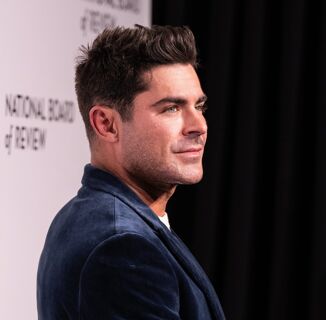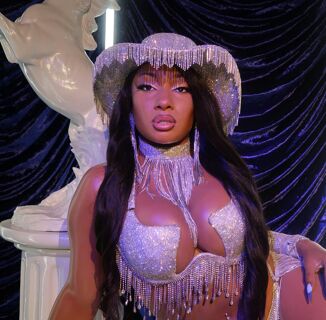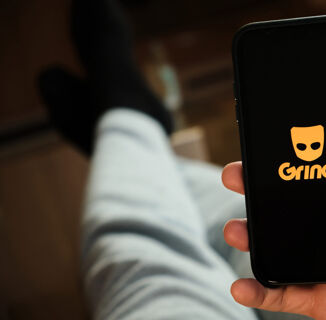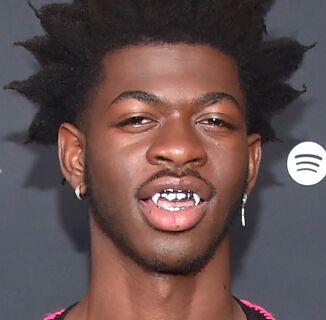I was recently incredibly saddened and disturbed by the death of a man I followed on social media.
I don’t know or care to know all the details, as they’re really no one’s business, but the non-confirmed consensus from comments and posts across the various platforms that have become so ubiquitous in so many of our lives, is that he committed suicide.
Anytime someone dies unexpectedly, especially someone young, it sends shockwaves through the community. The suicide of a loved one may be the most shocking kind of death any of us can experience.
As it is, death is omnipresent in LGBTQ lives in a myriad of ways. Gone, but not as long gone as we’d like to pretend, are the mass deaths of the HIV/AIDS crisis, at least in the United States. Sickness and death were such a common narrative in mainstream LGBTQ media from the 1980s onward that at some point toward the end of the first decade of the 2000s, I decided I didn’t care to see any more queer stories that focused on our decimation. Pose was a recent reminder of just how much we still do need to see these stories, if only to illuminate the lives of so many of those left out of these narratives, namely the people of color whose suffering and deaths never elicited national outrage or feature films or documentaries or an Act from Congress.
Trans women — almost exclusively Black trans women — are murdered so frequently that when viral posts on social media feature them my first thought is that it’s yet another violent death that will fade into memory with no solace, no justice.
A recent article asserted that nearly half of all trans men have attempted suicide. Another told the story of a 9-year-old boy who bravely came out as gay at school, and hanged himself a year later when the cruelty and degradation from his peers became too much to bear.
Death is omnipresent as a person of color as well. So many of our histories involve genocide and violent oppression. So many of our current realities exist under the constant threat of State-sanctioned violence or murder. Death looms over LGBTQ lives, especially those of us of color, because our very existence makes us vulnerable to violence and pain, both physical and emotional, from a society that hates us. When we thrive, when we succeed, when we simply live, it’s almost as if we’re barely skating by at full speed on the edge of the precipice and the wind is gusting as hard as it can to blow us into the abyss.
This man whose death shook me and so many others was exceedingly handsome, by all accounts very talented, had recently seen several big successes in his career and was in a serious long-term relationship with another beautiful man. I remember poring over their Instagram accounts, marveling at their beauty, their beautiful brown skin, their chiseled physiques, their incredible style. #RelationshipGoals. This, of course, is all gleaned from social media, the images and thoughts he and his partner shared with the world, filtered through whatever lens they chose. I have no way of knowing what his day to day life was actually like, or what private demons plagued him, what hidden emotions drove him to a dark place. But on the cursory surface of Facebook updates and Instagram photos taken in the bright, gleaming sunlight or at a fashion or media event among celebrities and other beautiful, smiling, successful people, his life looked exuberant, joyful, and most of all enviable. I wasn’t just impressed or lustful or entertained, I was envious.
Many have written about the illusory nature of social media, the curating of a life through words, images, filters, and hashtags. You can portray yourself to be whoever you want to be, and more importantly, you can portray yourself to be whoever other people want to be themselves. You can have it all, and other people will double-tap your perfect photo with its perfect caption and want to have it all as you do.
And simultaneously, as you create yourself and feel the dopamine flood your brain as your Friends and Followers validate your creation with Likes, Hearts, comments and DMs, you are witnessing others’ creations and wishing you too could have what they have. Locked in this unending cycle of desire. I wish my body looked like his. I wish my skin was that clear. I wish I was dripping in designer labels with a perfect trendy haircut and immaculately manicured facial hair. I wish I rubbed elbows with the rich and famous at exclusive events and fancy galas. I wish I lived in a modern, tastefully decorated luxury apartment by the beach and drove a brand new expensive car, or could go on lavish vacations to faraway islands and sip cocktails on beautiful white sand beaches surrounded by other beautiful men with bulging muscles and voluptuous asses and thick dick prints. #SquadGoals. I wish I had hundreds of thousands of followers or a blue check next to my Instagram handle or was sent free merchandise to advertise in a professionally photographed and edited “selfie” in my underwear.
None of it is real, or maybe some of it is, or maybe all of it is, the line between how we want to be perceived and how we perceive ourselves becoming more and more blurred with each filtered photograph or funny quip that goes viral or thirst comment on a shirtless mirror selfie.
I didn’t know this man whose life so abruptly and tragically ended. I’d never met him, or his partner. But I felt like I knew them. I followed his story, at least the public one he wanted me and everyone else who paid attention to see. I imagined what I believed to be them living their best lives, emotionally invested in that sort of passive way that you pay attention to other people’s business, partly out of admiration, or nosiness, or envy.
My heart dropped and my stomach knotted as I mundanely scrolled through Facebook and saw the news of his death breaking and the collective gasp of my social media community in response. I not only saw the pain of his closest friends spill out in photos and posts and comments but remembered other men like him whom I’ve known who suffered silently, unbeknownst to their closest friends and family until one day they decided they couldn’t go on. Men with perfect bodies, perfect jobs, perfect boyfriends, but who harbored such pain beneath it all, pain that no one else could see or touch or take away.
If there’s a lesson to be learned from this sort of tragedy every time it unfolds, every time it’s blasted across our curated online social lives, it’s a lesson we’ve already been taught a thousand times. It’s that you may never truly know another person’s life, you may never truly know their soul or their pain even if you are close to them, much less a spectator of the public image they’ve chosen to display.
There’s an inherent pain in existing as an LGBTQ person in this world, and inherent pain in existing as a black or brown person. It’s woven into our DNA, it’s programmed into our existence in every space we inhabit, in the real world and in the expansive augmented, fantastical reality of cyberspace. The illusion of a perfect life, even an illusion we invest so much energy into creating that we might actually start to believe it ourselves, doesn’t erase that pain.
I hope that this beautiful man’s loved ones are able to find peace in all this pain, to hold on to love that was generated and shared in their moments with him, and I hope that somewhere in the abyss this beautiful man who I admired and envied all at once doesn’t feel any pain anymore.
Image via Getty
Help make sure LGBTQ+ stories are being told...
We can't rely on mainstream media to tell our stories. That's why we don't lock our articles behind a paywall. Will you support our mission with a contribution today?
Cancel anytime · Proudly LGBTQ+ owned and operated
Read More in Culture
The Latest on INTO
Subscribe to get a twice-weekly dose of queer news, updates, and insights from the INTO team.
in Your Inbox














